Al Nakhil Paper: Moving With The Times
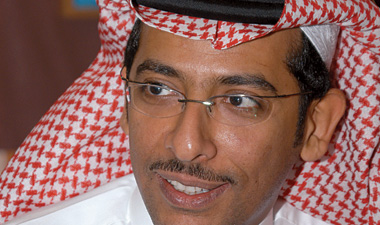
The only company producing carbonless copy paper (CCP) in Saudi Arabia, Al Nakhil Paper Industries Co. is considered to be the market leader in Saudi Arabia as well as the second largest paper trader in the kingdom.
Al Nakhil, a fully Saudi-owned limited liability company was established in 1993 as the first integrated factory in the Middle East to produce carbonless copy paper using micro encapsulation technology, owned by the Al Khorayef Group with a capital of SR 30 million and with investment at SR 80 million. Additional funding was sourced from partners, local banks and the Saudi Industrial Development Fund.
General Manager of Al Nakhil, Bandar Al Khorayef informs of how the Al Khorayef Group was established in 1957 as a modest private company involved in the agricultural sector, representing major international producers of agricultural equipment. The group diversified across several industrial and commercial lines and now manages companies involved in agriculture, petroleum, credit, operations and maintenance and, printing and paper as well as medical and marine supplies.
“The company had been solely involved in the agricultural business right up till the 80s when changes in the government subsidy and loan structure for the agricultural industry necessitated diversification,” adds Bandar Al Khorayef.
“In the early 90s, carbonless copy paper presented us with many opportunities as there was a good market for it at that time. We started setting up our purpose built 15,500 sqm factory in 1993, following which commercial production started in 96. The plant’s CCP production capacity is 12,000 tones while an additional converting capacity of 35,000 tonnes is available for producing other printing and writing paper. Al Nakhil utilizes its converting facility for grades such as offset and coated paper,” explains Bandar Al Khorayef.
“An ISO 9002 certified company since March 2000, Al Nakhil has more than 60 per cent share in the domestic carbonless paper market and having focused on export since inception, now exports 20 per cent of its carbonless production to neighboring countries. Our clients are continuous form printers, paper traders and some government agencies,” adds Al Khorayef.
While talking about the installation of a new tinting machine in the factory to offer increased flexibility of service to customers and about ‘pre-collated sheets,’ being introduced to help customers save on time and operation in the collating processes, Al Khorayef informs of future expansion plans: “We have enough capacity for carbonless copy paper so we are trying and developing important products like barrier coated (waterproof) paper and board etc and if those pick up in the market for which we foresee enough demand, we will be in a position where we will be fully utilizing our machinery. We will also focus on increasing our trading activities,” he informs.
Abdulrahman Almaauf, Marketing and Distribution Manager talks about the initial days of the company when the management had thought of marketing carbonless copy through distributors: “We however changed our minds when we realized that the traders were already dealing with well known brands and were reluctant to take on a new product. Hence we decided to establish our own logistics and distribution system in the main cities of Saudi Arabia.”
Al Nakhil distributes its products from three cities in Saudi Arabia, namely Riyadh, Jeddah and Dammam to neighboring cities across the country while export is predominantly to countries like Jordan, Syria, Kuwait, the GCC, Egypt, and Sudan: “There was a time when we used to export to Mexico and Canada but because of uncompetitive shipping charges, it is no longer feasible to export to these places.”
While explaining that carbonless copy paper is a declining product in Europe and America, Almaauf informs that the same is a stable product for developing nations but since the Saudi market is a suitable market for foreign manufacturers, Al Nakhil faces stiff competition from them due to the presence of local agents in Saudi Arabia who import these products. Competition was initially tough from European manufacturers and not that much from the Far East, but the situation now is such that competition is mainly from countries like Indonesia, China, and Thailand. Europe is less competitive due to the rising Euro, he informs.
The strategy of Al Nakhil is to fulfill customer needs as per their requirements: “It is in the local supply angle that we have an edge over our competitors because printers need not book full container loads with us. They can buy whatever they need on either a daily or on longer term basis, especially in the reel sector which is especially very good for converters. While offset sheets are imported into Saudi by traders, reels prove to be more difficult due to the different sizes and colors and this is where we step in to fill the gap. Moreover, our products are guaranteed and we follow a policy of giving replacements for defective products if any.”
Offering details on the production side is David Carscadden, Production Manager. “Right from its inception, production at Al Nakhil was carried out under a German license and a leading German carbonless copy paper manufacturer supervised its CCP production to ensure high-quality specifications. Production is automated, using fully computerized machinery across all production processes and a fully equipped laboratory has been set up for inspection of the product before it is transferred to the coating line.”
While citing the core business of Al Nakhil to be carbonless copy paper, he informs of other converting and finished products being processed as well. With 2004 being a good year for the company with 25% growth over the previous year, David states that all indications show that 2005 will continue in the same vein: “While we started out with CCP, we later introduced other product types such as woodfree offset paper and coated art paper in order to serve our customers better as carbonless paper is only a part of the demand from the printers. We produce in the range of 20,000 tons per year, out of which 7,000 tons is carbonless copy paper, 7,000 tons is offset paper, and 5,000 tons is coated paper while the other categories of paper which includes writing paper constitutes 2-3,000 tons.”
David explains that the majority of the manufacturing is made to a stock environment where the known demand is for repeat sizes and so delivery can be made on a same day basis from inventory. He also explains that approximately 30% of the production is to supply on a non-standard basis utilizing the converting machinery in the factory. This kind of production will have a short lead-time as the products are made to the customer’s exact requirements.
Of the main coating equipment David explains thus: “The coating line has special infrared quality measuring equipment which controls the coat-weights and moisture content and also final grammage of the material. The machine is state-of-the-art and is very sophisticated and was purchased from a world leading supplier of this type of equipment.”
“The machine is the only one of its kind in the Middle East. There are some small producers in other parts of the Middle East working with old equipment and old technology but not in such high volumes and not in such a sophisticated manner.”
Base paper for producing carbonless paper is mainly procured from, Europe, Indonesia and South America; however, the European brands have become very expensive due to the rising Euro. Uncoated base paper is bought in and passed through the coating line using our micro encapsulation technology where we produce ink capsules and also the reactive clay for the bottom sheet. When pressure is applied to the paper, an image is produced following a chemical reaction between the two.
“The laboratory has two sections, one wet and the other dry. The wet lab involves research and development. It tests the chemical raw materials to ensure quality and validity, testing also microcapsules during and after production. The dry lab tests the imported base paper and carbonless copy paper during and after the coating.”
“A sheeting machine separates reams, counts the sheets, filters unaccepted paper and can cut four rolls at a time. A wrapping machine automatically wraps reams with special paper coated with polyethylene for protection from humidity and heat as well as wrapping the whole wooden pallet with a film of polyethylene for extra protection.” The slitting machine splits jumbo rolls into baby rolls with automatic control over the tension applied on the rolls.”
“The company’s warehousing facilities are modern with central air conditioning and a computerized inventory system which speeds up delivery time and controls stocks on hand.”
On Al Nakhil’s diversification plan for the next five years, David informs: “Our growth rate is at the rate of 15 – 20 percent per year. We are trying to achieve this and trying to introduce new products to a totally different market segment of packaging. We’ve done a lot of research and development on some new coated products that could be produced on our machines. “Following an extensive period of production trials and development with various chemical suppliers we have mastered the manufacturing techniques required to produce food grade boards using the latest technology in water-based barrier coatings. These coatings have been developed in Scandinavia and they are a direct alternative to PE and Wax coatings and have been developed primarily on an environmental basis for European and North American markets as they are completely recyclable and biodegradable and as they are water-based they can be applied at high speed on our state-of-the-art coating machine. With this new technology we do not require a plastic extrusion plant to achieve the required coverage on the boards. We have also had recent success in producing ReamWrap material with a water-proof coating on the back side as there is a huge demand for this type of product globally.”
“We have a very creative and innovative management team at Al Nakhil and we continue to strive for new challenges and new opportunities for the company to grow.”
David Carscadden also informs about Al Nakhil’s intention to produce photographic paper in the near future, a product with a great deal of market demand.


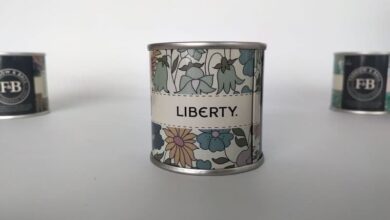
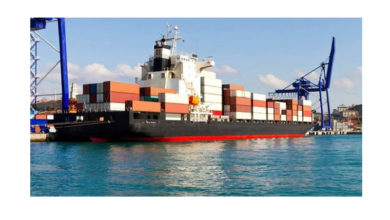
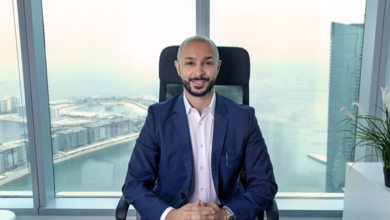
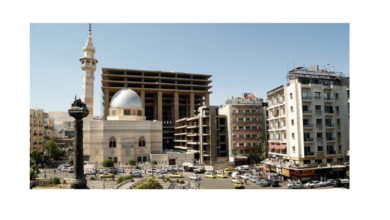
11 Comments